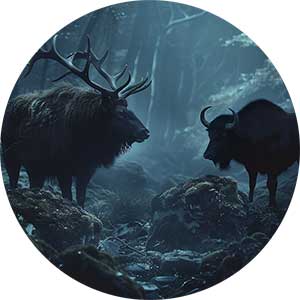Animalic notes in perfumery refer to ingredients derived from animals that impart a distinctive, often deep and enduring scent to fragrances. Historically, these notes were sourced directly from animals, such as musk from the musk deer, ambergris from sperm whales, and castoreum from beavers. These raw materials were prized for their complex, rich aromas and excellent fixative properties, which enhance the longevity of a perfume. Over the centuries, the use of real animal products has declined due to ethical, legal, and conservation issues, leading to the development of synthetic alternatives that mimic the scents of the original extracts. Today, animal notes in perfumery are predominantly synthetic, designed to evoke the warm, musky, and sometimes earthy qualities of the traditional ingredients. These notes add a unique depth and sensual character to fragrance compositions, often used in oriental and luxurious scents to give an impression of opulence and warmth. They are integral in creating perfumes with a strong sillage and a lasting presence, catering to preferences for complex, sophisticated fragrances that resonate with a sense of the forbidden and the primal.
Natural or Synthetic?
Due to ethical and conservation issues, synthetic alternatives are used to mimic traditional animal notes.
Fragrance Families Animalic Notes Most Commonly Found In
Show fragrances that contain Animalic Notes as a note



